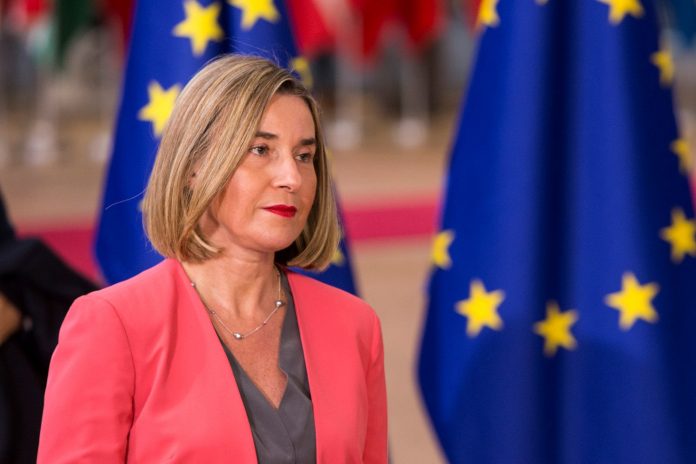Today, the European Union has moved to further strengthen its cooperation with the Organisation for Security and Co-operation in Europe (OSCE), setting up a framework between the European Commission, the European External Action Service, and the OSCE’s Secretariat, autonomous institutions and field operations. To this end, the High Representative of the European Union for Foreign Affairs and Security Policy/Vice-President of the European Commission, Federica Mogherini, exchanged letters with the Secretary General of the OSCE, Thomas Greminger.
“The OSCE lies at the heart of the European security order and is a pillar of European security. The European Union, which contributes more than two thirds of the OSCE’s main budget, as well as to additional projects and through personnel and equipment, fully supports the organisation’s work for stability, peace and democracy”, said Federica Mogherini.
“Our EU contribution to the Special Monitoring Mission in Ukraine is a concrete commitment to bringing peace to Ukraine through the full implementation of the Minsk agreements. We work hand-in-hand through election observation missions to strengthen democracies, from Kyrgyzstan to Albania. And we join forces to run training courses in everything from judicial standards, to journalism, to environmental protection.
It is clear that when we work closely together, we have real added value and can achieve much more.”
Concretely, the framework established today will set up regular consultations on all levels, designed to maximise efficient and effective cooperation in areas of common interest, to engage on common priorities, to exchange best practice, and to create synergies between EU and OSCE projects in the European neighbourhood, enlargement regions, Central Asia and Afghanistan.
The EU, like the OSCE, addresses security in a comprehensive manner. As such, this enhanced cooperation will cover all areas of the OSCE’s work, from conflict prevention, mediation and cross-border cooperation, to respect for human rights and fundamental freedoms; from the promotion of the rule of law and democracy, to strengthening States’ resilience to trans-national threats. Work will now be taken forward to put this framework into practice, working together for a peaceful, more stable, and more prosperous common region.

